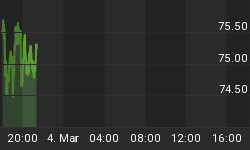Gold Slips Again But Investment Now "Reawakened, Legitimate" for Big Funds
THE PRICE OF GOLD gave back another strong Asian bounce on Wednesday morning in London, dropping back to $935 per ounce as world equities fell, led by a fresh plunge in China's stock market.
The Dollar rose, government bonds hit a one-month high, and crude oil dropped back below $69 per barrel.
"The metal [has] held up very well at the $930 level," writes Walter de Wet at Standard Bank. "Physical buying has provided this support despite the Dollar gaining ground against the Euro."
After spying physical demand in January between $850-$870 and a move to Buying Gold this summer on dips to $900-$920, "Support might be moving even higher, towards $930," says de Wet.
"However, part of the buying is likely to be seasonal and this support may move lower again once [India's autumn festival] demand passes towards year-end."
Looking further ahead, "As a pure commodity we think the demand/supply equation is pretty good for Gold," says Ian Smith, CEO of Newcrest Mining.
Annual world production has fallen more than 7% from its 2001 peak of 2,600 tonnes, says Smith - head of Australia's largest listed Gold Mining firm - while investment demand only continues to grow.
"Gold has been reawakened as a legitimate part of investing. We think that'll stick with us for the next five, ten years," he's quoted by the Business Spectator.
"We see demand for gold as a currency financial instrument being maintained in the longer term."
New data released today by marketing-group the World Gold Council showed Gold Investment demand rising yet again between April and July, adding 46% from the second quarter of 2008 but failing to exceed global jewelry demand as it did during the first 3 months of this year.
"We predict that in three to five years investment [annual] demand for gold will be the same as jewelry demand," says Nick Holland, CEO of world No.4 Gold Mining group Gold Fields.
Summing up more than 60 recent meetings with investment-fund managers, "The one thing that has come through consistently is that Gold is fast becoming an investment class for just about every portfolio,"
"Some of the funds we are seeing have never been close to going into gold, but you could see by the questions they were asking that they were trying to work out the best entry point."
Investment demand for Gold Bars, coins, trust funds and Allocated accounts in the year-to-June rose 122% from the previous 12 months according to the GFMS consultancy - producers of the WGC's quarterly data.
The only gold jewelry market to grow between April and July was mainland China, today's report says, driven by "resilience of the Chinese economy to the global downturn."
Wednesday morning, however, the Shanghai stock market slumped once again, down 4.3% for the session and some 20% off its top of just a fortnight ago.
The US Dollar and Japanese Yen both rose as Asian and European shares fell, while the British Pound dropped 2¢ on what one analyst called "stunning" news that Bank of England governor Mervyn King voted for a greater stimulus than the £50 billion ($82bn) of new money created at this month's UK policy meeting for Quantitative Easing.
The Gold Price in British Pounds rose in response, unwinding a third of the last four session's 2.5% losses, hitting £571 an ounce.
Unless UK government debt is capped soon, British Conservative Party leader David Cameron told an audience in London last night, "You run the risk of not being able to meet your obligations.
"I'm not predicting that [a UK default] is going to happen, but as government borrowing goes up and up and up, you start running that risk."
Legendary US investor Warren Buffett warned yesterday against the "gusher of federal money" currently supporting the US economy.
"Unchecked carbon emissions will likely cause icebergs to melt," he wrote in the New York Times. "Unchecked greenback emissions will certainly cause the purchasing power of currency to melt."
Government bond prices rose today as world stock markets fell, pushing the yield offered to new buyers of 10-year US Treasuries down to a five-week low of 3.44%.
Ten-year German bund yields fell to 3.27%.
"We expect 10-year [German] bund yields to be able to break the 3% line in coming months and, beyond that, to hit 2.5%," says Steven Barrow, chief currencies strategist at Standard Bank in London.
Dismissing last week's growth surprise in the German and French data, "Depressed growth, slumping inflation, strong anti-inflation credibility, limited discretionary fiscal easing and the strong Euro are all reasons to prefer core Eurozone bonds to markets like [UK] gilts and [US] Treasuries," says Barrow.
The cost of insuring UK gilts against default rose this morning to 0.62%, just shy of Portugal's 0.63% and well above the cost of insuring German Bunds at 0.26%, Bloomberg data showed.















